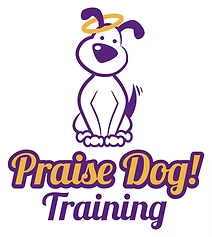
Training with Kindness
Effective, reward-based training...no need for choke chains, prong collars or shock collars
Serving Richland and Lexington Counties in SC
Serving other counties remotely
Want updates on the latest classes and news? Subscribe to our newsletter by emailing.
FAQs
What if I don’t want to use a clicker?
We never force our clients to use a clicker! We do ask that, whenever possible, you try it for a while because we have found that it is an incredibly clear, precise way to communicate with your dog. However, we can also teach you how to use a verbal marker instead.
Isn’t it hard to use a clicker and treats and hold the leash at the same time?
You will need to practice before you feel comfortable. But it doesn’t take long and we will coach you on how to hold the clicker, leash and treats.
Will I always have to use the clicker?
No! The clicker is a training and communication tool. Once your dog is dependable with the skill you are teaching, then you don’t have to use the clicker anymore. However, if you find that the dog is no longer responding to your cues or you begin training in a new, distracting environment, you may need to use the clicker again until the behavior once again becomes dependable.
I have a fill in the blank (German Shepherd, pitbull, Rottweiler, other large dog) and I’ve been told that my breed can’t be trained with reward-based training.
All dogs learn the same way, even the big, strong, aggressive or rambunctious ones. I have successfully worked with all breeds and temperaments of dogs. In fact, I own a very large German Shepherd Dog from working lines and I have never had to put a shock collar, prong collar or choke chain on him to get a reliable response.
The key to working successfully with any dog using reward-based training is to communicate properly with them and be consistent. Just because we are positive trainers does not mean that we are permissive trainers. We help your dog understand the behavior we want by teaching behaviors in a way that they can understand easily and are rewarded for. We teach you how to become a benevolent leader.
Do I have to use treats to train?
Food can be a very valuable reinforcer (paycheck!) for dogs during training. It’s one of a very short list of things that dogs are born already knowing is good. While most dogs easily learn to enjoy praise, petting and play – all of which also make good rewards -- food still holds a special place in their minds due to its primal nature.
What if my dog doesn’t like treats?
We will help you discover a food reward that your dog likes. Many dogs only mildly like commercial treats, but we can suggest food rewards that will be more appealing. It helps to train your dog before he has eaten his meals. Play is often an appealing reward to some dogs. Petting is generally more rewarding to you than to your dog so we rarely recommend that as a reward.
If I use food to train, won’t I always have to have food to get my dog to listen?
No. We teach you the proper way to reward, not bribe, with food. We get the food out of your hand quickly and in our Advanced Manners class, we teach you how to delay the reward, or to provide a “life reward,” not a food reward.
I want to teach my dog to go off-lead, do you do that?
We can teach your dog to go off-lead, but that is a skill that is not addressed in our classes. You must first train reliable cues on-lead. Additionally, there are very few places where it is legal to have your dog off-leash and we adhere to community regulations. If this is something you wish to do, we can arrange special lessons after you have completed basic and advanced training.
Do you offer a guarantee?
No, we do not. We cannot predict your dog’s response in all situations. Additionally, we are not with you 24/7 to make sure you are responding properly to your dog. However, we do make this promise to you: after your lessons are over, we are available to you for the life of your dog for questions or input, as long as we can answer them by phone or email. We have clients from years past send us videos that we can view to provide advice. Charges are only incurred when we come to your home.
Additionally, the Council for the Certification of Professional Dog Trainers, from which Phyllis is certified, requires its certificants to sign an ethics pledge in its Standards of Practice and Code of Ethics which includes: “To refrain from offering guarantees regarding the outcome of training and behavior work.”
Got more questions? Email us or call us at 803-238-8740